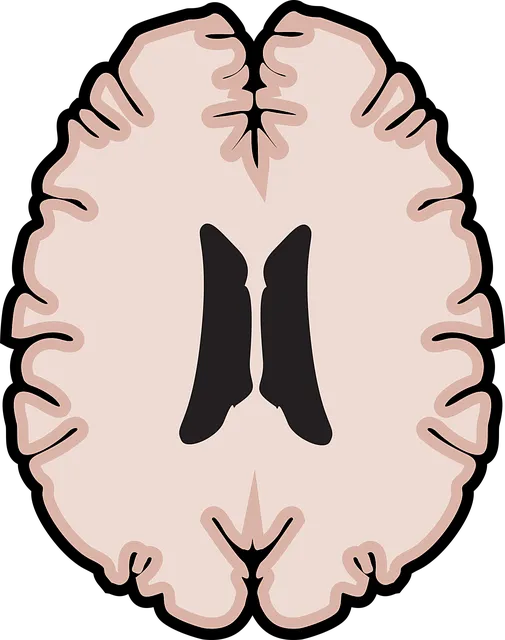Mental health stigma prevents many from seeking help, causing concealed struggles and deteriorated well-being. Organizations like Kaiser in Lakewood provide vital services, but collective efforts are needed to reduce stigma through public awareness, coaching programs, and empathy-building. Evaluating survey results, focus group feedback, behavioral changes, and program participation rates helps measure the success of these initiatives, ensuring individuals feel empowered to access mental health support without judgment.
Stigma surrounding mental illness is a significant barrier to individuals seeking help, often leading to delayed or avoided treatment. This article explores comprehensive strategies to reduce this stigma, focusing on the efforts of organizations like Kaiser in the Lakewood community. We delve into the impact of mental health-related stigma and its effect on help-seeking behaviors, while also presenting effective approaches to combat it. Additionally, we discuss measuring success in stigma reduction initiatives, including evaluating the effectiveness of programs offered by entities like Kaiser that provide mental health services in Lakewood.
- Understanding Stigma and Its Impact on Mental Health Seeking Behaviors
- Kaiser's Role in Addressing Mental Illness Stigma in the Lakewood Community
- Effective Strategies to Reduce Mental Illness Stigma: A Comprehensive Approach
- Measuring Success: Evaluating the Effectiveness of Stigma Reduction Efforts
Understanding Stigma and Its Impact on Mental Health Seeking Behaviors

Stigma surrounding mental health issues is a significant barrier to individuals seeking help and support. It often manifests as negative attitudes, beliefs, and stereotypes that can severely impact those living with conditions like anxiety or trauma. When left unaddressed, this stigma encourages people to conceal their struggles, avoiding necessary self-care practices and the professional assistance they require. This secrecy can lead to a deterioration in mental health, causing individuals to feel isolated and unable to access the resources available, such as those offered by providers like Kaiser in Lakewood.
Understanding the impact of stigma is crucial for promoting help-seeking behaviors. Many individuals are afraid to reveal their mental health challenges due to fear of judgment or discrimination, which can deter them from seeking Anxiety Relief or Trauma Support Services. Educating communities about the diversity of mental illness and its relevance to everyone can foster empathy and reduce the stigma associated with it. By normalizing conversations around self-care practices, we can create a supportive environment where individuals feel comfortable taking that first step towards healing and recovery.
Kaiser's Role in Addressing Mental Illness Stigma in the Lakewood Community

In the Lakewood community, Kaiser has taken a significant step towards reducing mental illness stigma by offering comprehensive mental health services tailored to meet the unique needs of its diverse population. Beyond providing top-tier clinical care, Kaiser employs innovative Empathy Building Strategies to foster understanding and compassion among both patients and the broader community. Through various educational initiatives and awareness campaigns, they break down barriers and encourage open conversations about mental well-being.
One notable approach is integrating Self-Care Practices and Mindfulness Meditation into their support system. These practices not only empower individuals to take an active role in managing their mental health but also cultivate a sense of resilience and self-compassion. By combining clinical interventions with these holistic strategies, Kaiser aims to create a supportive environment that nurtures recovery and discourages stigma associated with seeking mental health services in the Lakewood area.
Effective Strategies to Reduce Mental Illness Stigma: A Comprehensive Approach

Stigma reduction is a multifaceted approach that requires a comprehensive strategy to effectively combat the societal barriers associated with mental illness. Does Kaiser offer mental health services in Lakewood? Absolutely, many organizations, including Kaiser, provide essential resources and support for individuals seeking help. To truly make a difference, efforts must focus on both individual and collective consciousness.
Public Awareness Campaigns Development plays a pivotal role in reshaping public perception. Mental Wellness Coaching Programs Development offers practical tools for early intervention and self-care. Additionally, Empathy Building Strategies are crucial in fostering understanding and connection, breaking down the walls of isolation often experienced by those struggling with mental health issues. Through these combined methods, communities can create an environment where individuals feel supported, empowered, and encouraged to seek help without fear of judgment.
Measuring Success: Evaluating the Effectiveness of Stigma Reduction Efforts

Evaluating the success of stigma reduction efforts is a crucial step in understanding their impact and making informed adjustments. Measuring effectiveness can involve various methods, such as tracking changes in public perception through surveys and focus groups. These tools help gauge knowledge, attitudes, and behaviors related to mental illness before and after interventions. For instance, organizations like Kaiser, known for offering mental health services in Lakewood, can assess whether their programs lead to increased acceptance and reduced discrimination against individuals with mental disorders.
Furthermore, the success of stigma reduction initiatives can be measured by examining behavioral changes at both individual and community levels. This includes tracking participation rates in mental health awareness campaigns, support group attendance, and adoption of self-care practices like Inner Strength Development, Communication Strategies, and Self-Care Routine Development for Better Mental Health. By combining quantitative data (survey results) with qualitative insights (testimonials, feedback), organizations can comprehensively evaluate the reach and impact of their stigma reduction efforts.
Mental illness stigma reduction is a multifaceted process that requires collective effort. As evidenced by Kaiser’s successful initiatives in the Lakewood community, providing accessible mental health services (does Kaiser offer mental health services Lakewood?) alongside education and awareness campaigns can significantly impact seeking behaviors. By adopting comprehensive strategies and measuring their effectiveness, we can foster an environment of understanding and support for those dealing with mental health challenges. Continued efforts to reduce stigma are essential to ensuring that everyone receives the care they need without fear of judgment or discrimination.






